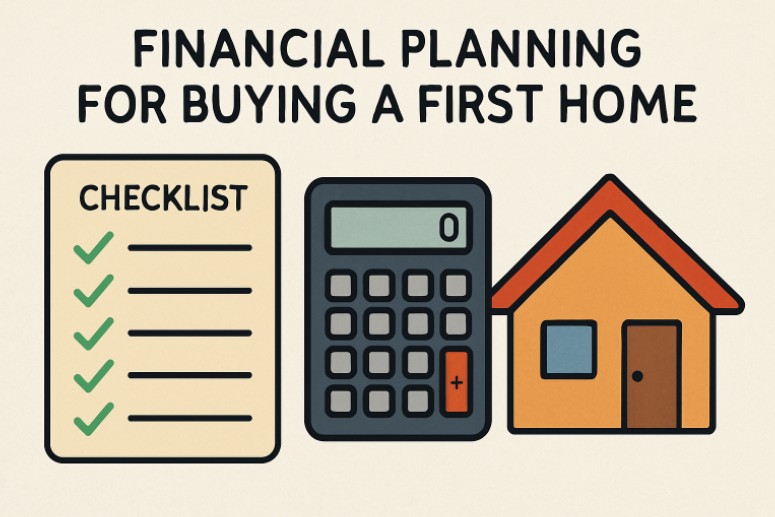Why Preparation Matters for Homebuyers
Buying a home is a major milestone—one that requires detailed planning and thoughtful questions. In recent years, the housing market has undergone significant shifts, with increased competition and fluctuating interest rates making strategic planning more critical than ever. Getting ready before you start the search will not only ensure a smooth buying experience but also help you avoid common pitfalls associated with rushing into a purchase. Your first home is more than just an investment; its impact extends to your daily life and future financial health. Decisions made at this stage can impact everything from your stability to the resale value of your property down the line. That’s why many buyers choose to work with Vail, CO, real estate experts at Viola Realty, ensuring they have trusted guidance throughout every step of the process.
Understanding Your Financial Position
The backbone of any successful home purchase is a clear understanding of your finances. Start by determining how much house you can afford based on your income, expenses, and savings. This includes setting apparent budget limitations that account for both your down payment and monthly mortgage payments.
Your credit score will play a significant role in the loan options available to you and the interest rates you’ll qualify for. Begin by checking your score and taking steps to improve it if necessary. It’s also important to save for a down payment, as higher down payments can often lower your long-term mortgage costs.

Key Questions About Mortgage Choices
Choosing the right mortgage is crucial, as the type of loan you select can have a lasting impact on your finances. Common options include conventional, FHA, VA, and USDA loans, each with its own eligibility criteria, down payment requirements, and potential benefits. Comparing these loans side by side can help you select the best fit for your situation. Resources like NerdWallet, which provides a helpful, detailed breakdown on choosing the best mortgage, can offer valuable guidance.
One of the most significant questions to ask is whether a fixed-rate or adjustable-rate mortgage is right for you. Fixed-rate mortgages offer predictable monthly payments, while adjustable-rate loans may start with lower rates but can increase over time. Understanding how these options align with your long-term goals is crucial.
Location, Lifestyle, and Long-term Needs
The location of your new home will shape your daily routine and family life. Evaluate neighborhoods for proximity to work, amenities, and transportation. Take into account schools, parks, healthcare facilities, and the overall community atmosphere. These factors can also influence future resale value and overall satisfaction with your purchase.
Today’s buyers are placing greater emphasis on lifestyle, community offerings, and flexible work setups.
Home Inspection, Repairs, and Maintenance Costs
A professional home inspection is crucial for identifying hidden issues, such as structural weaknesses or outdated systems. Skipping this step can lead to costly surprises after move-in. In addition to the upfront costs, first-time buyers should estimate the ongoing expenses of repairs and regular maintenance. Creating a realistic budget for these items helps avoid undue stress and protects your investment.
Navigating Offers and Negotiations
Making a strong, competitive offer is about more than just price. Understand local market conditions and work closely with your real estate agent to evaluate comparable sales in the area. Include contingencies for inspection and financing, and be prepared to negotiate concessions or terms.
First-time buyers often face pitfalls such as overbidding in a hot market, not understanding contract terms, or waiving critical contingencies. Thorough preparation, along with the guidance of experienced agents, can help you navigate these challenges successfully.
Finalizing the Purchase: Steps to Closing
The closing process involves several legal and financial steps before ownership officially transfers. Expect to review disclosures, finalize mortgage paperwork, and conduct a final walk-through of the property. Prepare the required documents in advance and set aside funds for closing costs. This diligence helps prevent delays and ensures a smooth handover of the keys to your new home.
Resources and Support for First-Time Buyers
Arm yourself with credible, up-to-date information throughout your journey. National publications and platforms provide objective guides on a wide range of topics, from mortgage types to negotiating strategies. One renowned starting point is the Consumer Financial Protection Bureau’s mortgage guide, which offers step-by-step support for new buyers.
Rely on the advice of trusted real estate professionals, reputable lenders, and government resources. Networking with other new homeowners can also provide invaluable insights and encouragement.
Conclusion: Making a Confident Home Purchase
Buying your first home is a complex process, but by asking the right questions and seeking expert support, you can make informed decisions that set you up for success. Preparation, research, and proactive engagement are your greatest allies on this exciting journey. Take charge of your homebuying experience, and enjoy the comfort and security of your new investment.
